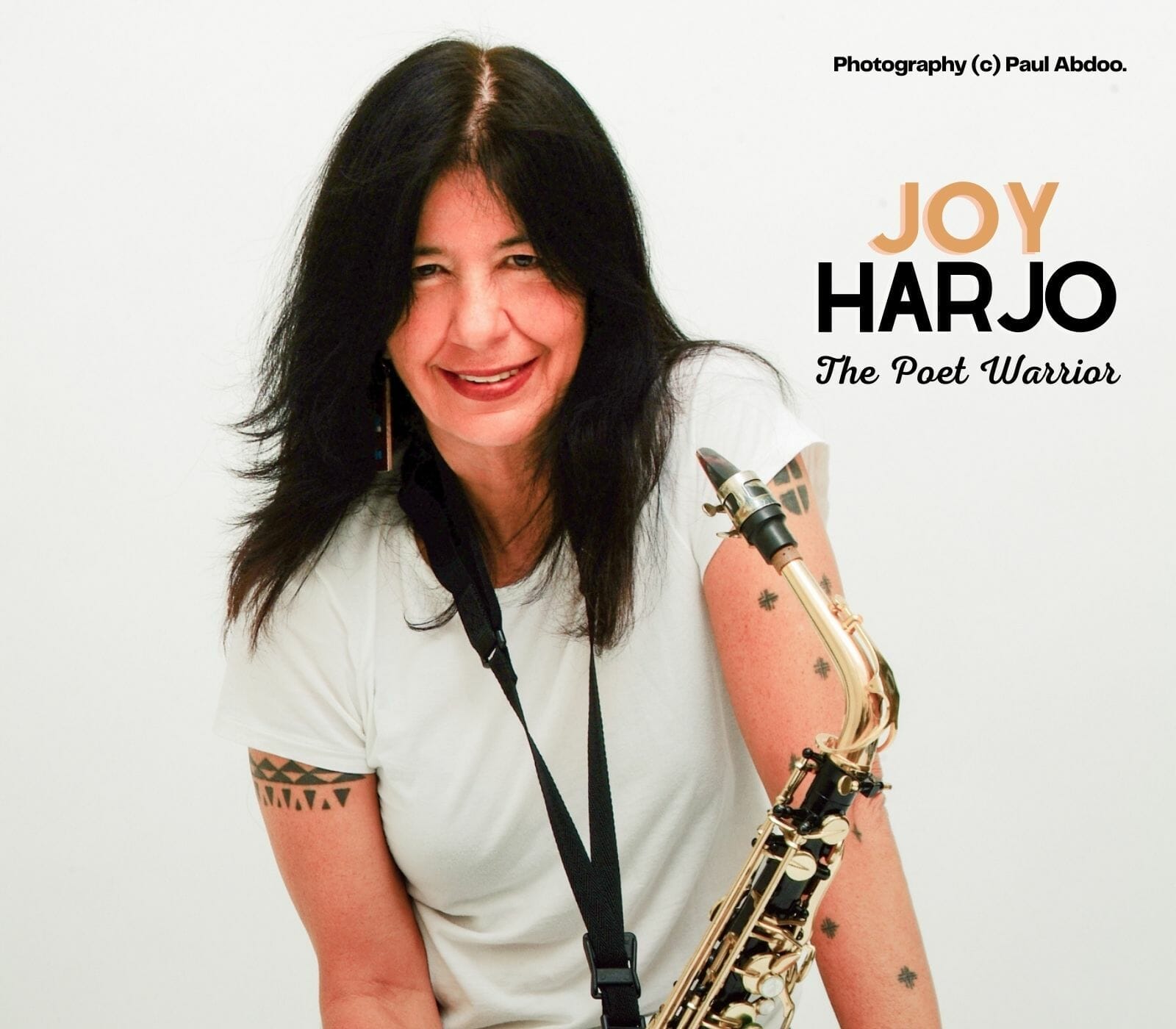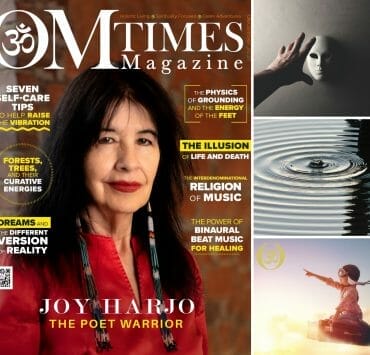Joy Harjo: The Poet Warrior

Awareness was my first instinct. I’ve always had a kind of awareness that started early. I’ve written about it in “Poet Warrior” and “Crazy Brave”—about traveling in my spirit when I was a young child. I loved the night because I would leave my body, and I would go on these journeys.
Having this awareness was very difficult, living in a little community in Tulsa, Oklahoma, post-war. But this creativity was how I became aware that I was in a dynamic universe. But, of course, as a child, I wouldn’t have called it that. So I don’t really use those words now, necessarily. But, still, it seems like my major impulse is to basically translate what I see here and to use language or music, or both. Then, at some point, painting or art, exploring or listening to this universe and the teachings have for us.
OMTimes: Tell us a bit about the journey of crossing the threshold, breaking the glass ceiling as a woman, as a Native American, that opened the gateway to many other Native American Artists?
Joy Harjo: I guess what I found was my path. And I remember coming to this conclusion in kindergarten when we were all sitting around the table drawing. I can still smell that paper. What did they call it? News, not newsprint, it wasn’t called the newspaper. I can just see those smells, that paper. And everyone was drawing the same house, the same lollipop trees. Everyone was looking at each other and drawing the same thing. And I was drawing something totally different. And I asked them—it was one of the few times I spoke, I never spoke a lot when I was younger—why are you guys drawing the same thing? And what was interesting was that they looked at what I was drawing and started copying me. It caught my attention. It’s a kind of the story of my life that, whatever I’ve done, I do my own way. I’ve had to.
I respect the conventional ways, and I have learned from some of the best and the worst. There’s always something there to learn. Following the more predictable path might have been easier, but it wouldn’t have been mine. If I aligned with a particular school of poetry, for example, or fell into a specific political stance or genre, I wouldn’t be me. I’ve just followed my own path and voice. I make my own place. When I write music and put out albums, it doesn’t fit any customary genre or style. Same with my poetry and my new Memoir, Poet Warrior. When I gave my editor the manuscript, she said, you’ve done it again. You have reinvented Memoir.
OMTimes: Was it more difficult to have your words recognized because you represent Native peoples?
Joy Harjo: Definitely. Oh yeah. I think so. I don’t represent Native people, but in this country, if you’re a Native person who gets some recognition, people often want you to become representative of every indigenous person that ever lived and that no one can ever be! I am also an individual with my rhythm and my tribal nation. I don’t represent.
All of us deal with the caste system in America, with a hierarchy of value of who is speaking, which I call the over-culture. Males in this over-culture, and their voices, are seen as having more value. Then there are women. And at the bottom of that hierarchy are Natives. So, I think Native women are at the bottom of that hierarchy. So, having our voices recognized is definitely a challenge.
OMTimes: Tell us more about your next creative projects and how people can follow you and know about your events?
Joy Harjo: I’m continuing to promote Poet Warrior, and my last book of poetry, An American Sunrise, is one of this year’s NEA Big Read selections, with events going on around the country, which is mostly available virtually and open to the public. You can follow my events and readings on my website, joyharjo.com. I’m currently working on a play musical play called, We Were There When Jazz Was Invented, and I have another music album in mind that I’m starting to work on. I’m also working on a project with young Muskogee Creek citizens with art, creating arts mentorship opportunities not just in poetry or music but with all the arts. So, I’ve got a lot of different things going on. In addition, I am a grandmother, great-grandmother, and still doing my paintings. The Poet Laureateship concludes after April 2022, and I will pass it on to another. I’m deeply honored to serve in this position, especially at this time. It has been an honor. My boss at the Library of Congress said this has been one of the most unusual terms for a Poet Laureate, politically speaking. Political because of the urgency. I’ve seen my role as somebody holding the door open.
OMTimes: Joy, it was an immense pleasure, you know, and I think you so much for making time for us. We are anxious to continue hearing from you and your incredible creative ways.
In her first new recording in a decade, Joy Harjo – the first Native American named Poet Laureate of the United States – digs deep into the indigenous red earth and the shared languages of music to sing, speak and play a stunningly original musical meditation that seeks healing for a troubled world. “The concept for I Pray for My Enemies began,” says Harjo, “with an urgent need to deal with discord, opposition. It could have been on a tribal, national, or personal level. I no longer remember. The urgency had a heartbeat and in any gathering of two or more, perhaps the whole planet, our hearts lean-to entrainment – that is, to beat together.”Listen to her on Spotify here
Visit Joy’s Website
OMTimes is the first and only Spiritually Conscious Magazine. Follow Us On Facebook, Twitter, Instagram, Linkedin, Pinterest, and Youtube
Creatrix from Sirius. Fairly Odd Mother of Saints (Bernards). Fish Tank aficionado by day ninja by night. Liane is also the Editor-in-Chief of OMTimes Magazine, Co-Founder of Humanity Healing International and Humanity Healing Network, and a Board Member of Saint Lazarus Relief Fund.






